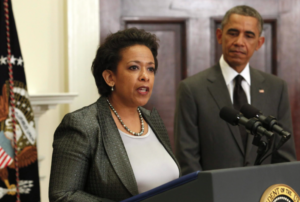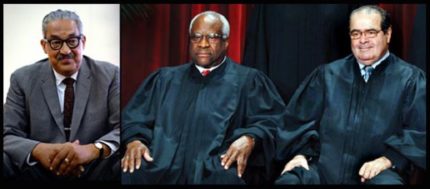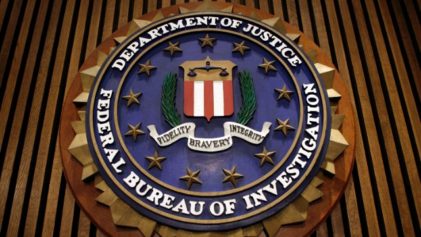
“Frankly, the onus is on law enforcement because we are the ones who have taken the oath to protect and to serve the people of this city,” Lynch said back in 2010. “And we are the ones who have the ability to change from within.”
Lynch has a long history of working with people who have been slighted by the police system, including prosecuting in a case in 1997 in which Haitain immigrant Abner Louima was beaten and sodomized with a broom stick by New York Police for apparently disrupting an argument between two women that the police were trying to break up. She has always fought for the every day man even taking down Republican Rep. Michael Grimm, who was indicted in April on 20 charges including tax fraud and obstruction of justice.
“There were people who, until I worked on the Louima case, thought, Why do you do this? To me, I do it because I think everyone deserves protection,” Lynch told the Harvard Law School bulletin. “Frankly, it shouldn’t be an easy thing to stand up and say this person by their actions has forfeited their right to walk among free people.”
The Harvard grad understands the hardships people of color go through everyday, as she herself, had a hard time being taken seriously in the beginning of her career.
“When I was a young associate when I went to take a deposition and everyone assumed I was the court reporter,” she told a journal at Harvard Law School in 2012 of the racial biases she encountered. “Or when I interviewed at a law firm and the receptionist looked at me and said: ‘You can’t be Loretta Lynch. She goes to Harvard.'”
Appointed U.S. Attorney in Brooklyn by President Clinton in 1999 and again in 201o by President Obama in 2010, Lynch is now the top federal prosecutor in Brooklyn. Each term Lynch has served has followed high profile police brutality cases. In 1999 she came on after the Louima case and another case where a Hispanic man was choked to death. Her first term followed a string of high-profile police abuse cases, including the choking death of a Hispanic man in 1994 and her second term came after the shootings of a West African immigrant in 1999 and a Black security guard in 2000, so Obama’s appointment of Lynch as the next U.S. Attorney General is no surprise.
“We live in a time where people fear the police,” Lynch said in 2000, at an Association of Black Women Attorneys luncheon, according to the New York Times. “But we must also understand that when people say they fear the police, as bad as that is, they are also expressing an underlying fear, that when they are confronted with the criminal element in our society, they will have no one to call upon to protect them. And that feeling of vulnerability and utter helplessness is the worst feeling that we can inflict upon fellow members of our society.”
Although it is clear that Lynch, given her past and views would make great strides in the position, the Senate Judiciary Committee has not scheduled hearings on her confirmation.


